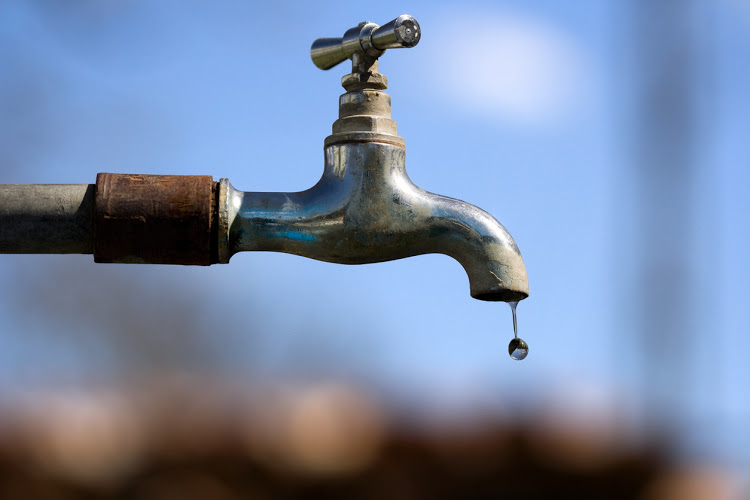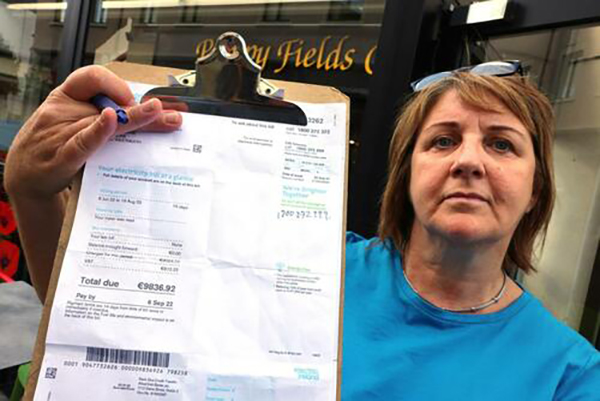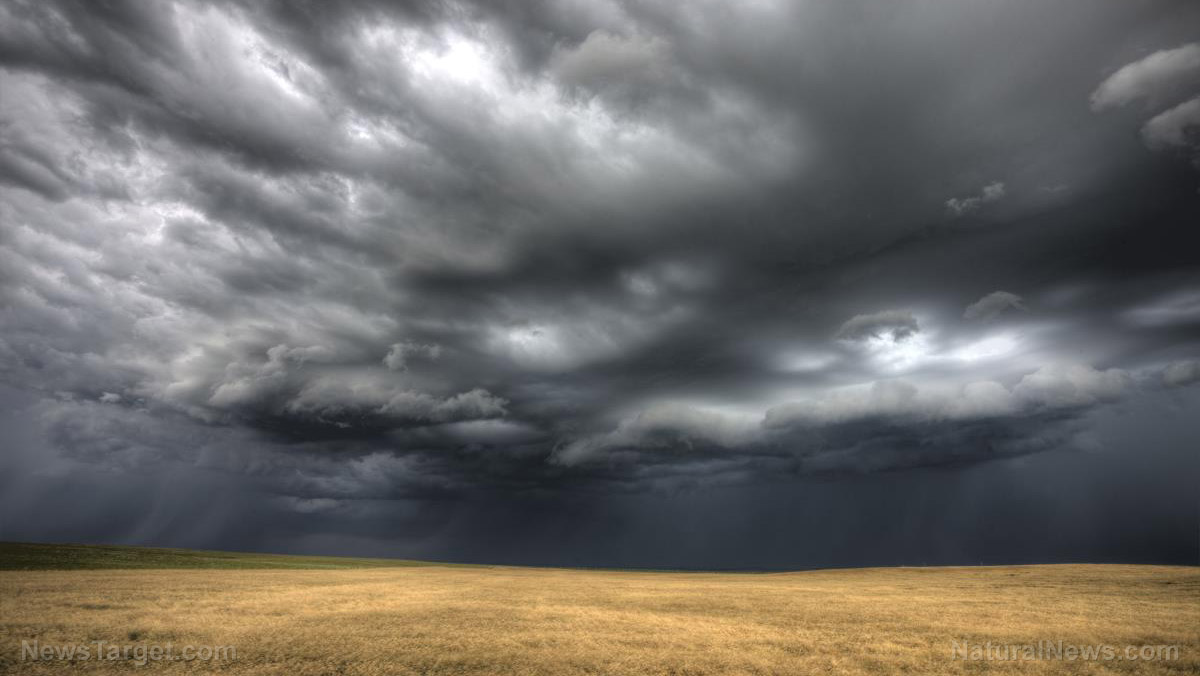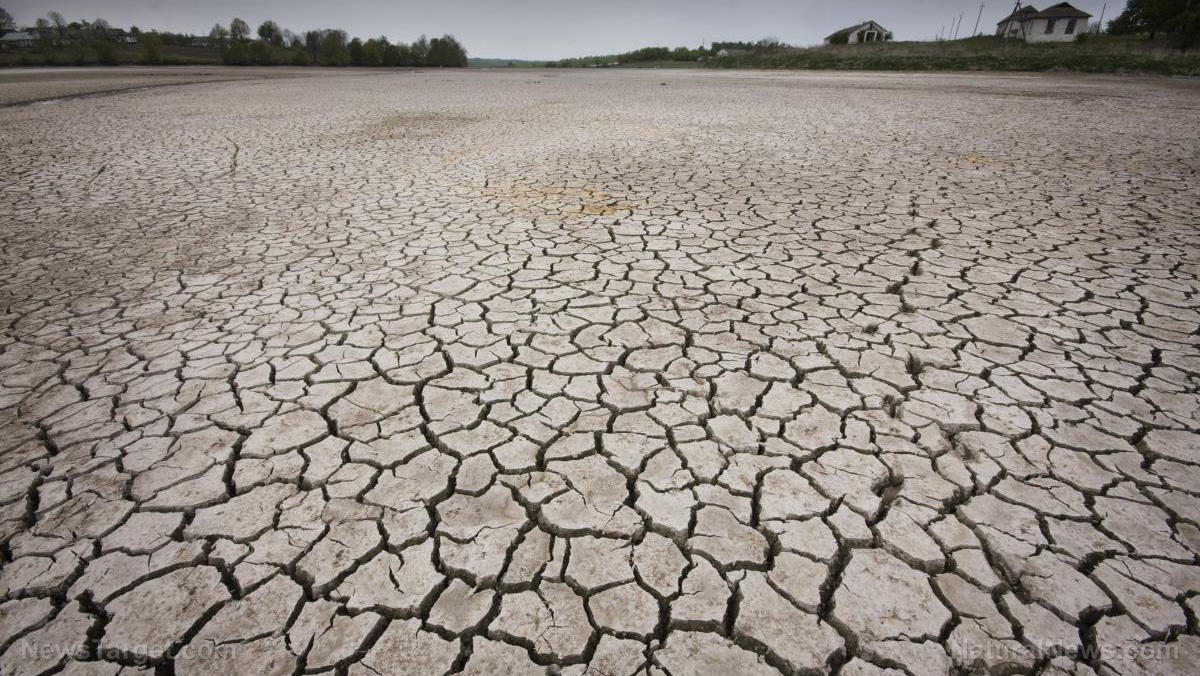Taiwanese president appeals to constituents to conserve water as country faces severe drought
03/14/2021 / By Divina Ramirez

Taiwan’s President Tsai Ing-wen has asked his constituents to conserve water and prepare for shortages as the country faces its worst drought in over five decades, according to a recent report from Strange Sounds.
In a Facebook post on March 7, Tsai said Taiwan is now facing its worst water crisis in 56 years. Typhoons produce large amounts of rainfall that fill up Taiwan’s dams and reservoirs, but not a single typhoon hit the country last year. It also only had scant rainfall in recent months.
Tsai said the government has set up an emergency response center to deal with the drought. She said they are also monitoring water conditions throughout the island.
Meanwhile, Center Weather Bureau (CWB) Director-General Cheng Ming-dean said a high-pressure system is blanketing southern Taiwan, creating an atmosphere that prevents rain from falling in the region. The shortages there are particularly severe.
Northern Taiwan has seen more precipitation in recent weeks. However, it has been of little help to the overall situation, said Cheng.
Peng Chi-ming, founder and chief executive officer of the private weather company WeatherRisk, told Central News Agency (CNA) over the weekend that rainfall would be scarce across Taiwan from March through April. The situation is also expected to continue into May and June, which typically have the most rainy days.
Peng also said there are no signs indicating that tropical storms might form ahead of Taiwan’s usual rainy season. “There is no room for optimism.”
However, he noted that it is still too soon to tell. He said Taiwan has never gone two consecutive years without being hit by a typhoon.

Possible water shortage could impact chipmakers
The lack of rain means Taiwan might be facing a water crisis soon. According to local reports last month, authorities have already stepped up nationwide water restrictions and utilized emergency water resources, such as the desalination plant in Hsinchu County in northwestern Taiwan.
In her post, Tsai said the government dispatched a military transport aircraft to carry out cloud seeding in northern Taiwan, which has one of the country’s largest water catchment areas. However, that reservoir is at 49.13 percent storage capacity only. Several reservoirs are also at record-low levels of storage capacity.
Cloud seeding involves introducing small liquid droplets called aerosols into clouds to make them rain. Last year, Taiwan carried out cloud seeding operations to aid the arrival of a cold front that brought spring rain. The operations were expected to add more than 16.6 million tons of rainwater to the country’s reservoirs.
With the country’s reservoirs once again riding on the success of cloud seeding operations, Taiwan’s semiconductor industry is not leaving anything to chance.
Taiwan Semiconductor Manufacturing Company Limited (TSMC), the world’s largest contract chipmaker, was reportedly buying water as a “pressure test.”
Semiconductor chips are needed to produce modern vehicles, tablets, smartphones, computers and the like. If the water shortage disrupts Taiwan’s semiconductor sector, the multi-billion dollar tech and auto industries could suffer greatly. (Related: US government proposes CUTTING OFF China’s access to chip technology.)
The good news is that the current water scarcity has not had any major impact on the semiconductor sector, noted Gokul Hariharan, managing director of the global financial services holding company JPMorgan Chase & Co.
Meanwhile, Taiwan’s Minister of Economic Affairs Wang Mei-hua, told reporters on Monday, March 8, that Taiwan has enough water to supply both the public and the island’s industries. She said that the drought has so far exerted no impact on TSMC or other companies.
Go to CleanWater.news to learn more about the possible water shortage facing Taiwan and other water crises.
Sources include:
Submit a correction >>
Tagged Under:
chip technology, clean water, computer chips, Drought, Ecology, environ, environment, natural disaster, semiconductors, Taiwan, water crisis, water shortage, water supply
This article may contain statements that reflect the opinion of the author
RECENT NEWS & ARTICLES
COPYRIGHT © 2017 COLLAPSE.NEWS
All content posted on this site is protected under Free Speech. Collapse.news is not responsible for content written by contributing authors. The information on this site is provided for educational and entertainment purposes only. It is not intended as a substitute for professional advice of any kind. Collapse.news assumes no responsibility for the use or misuse of this material. All trademarks, registered trademarks and service marks mentioned on this site are the property of their respective owners.





















